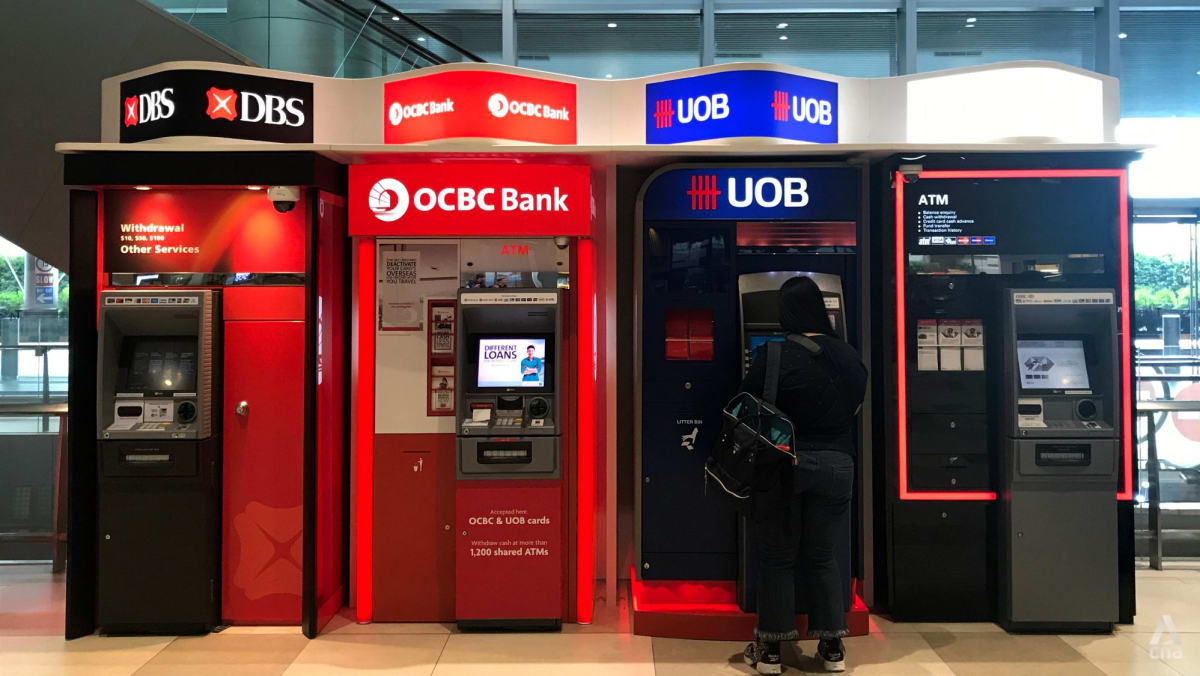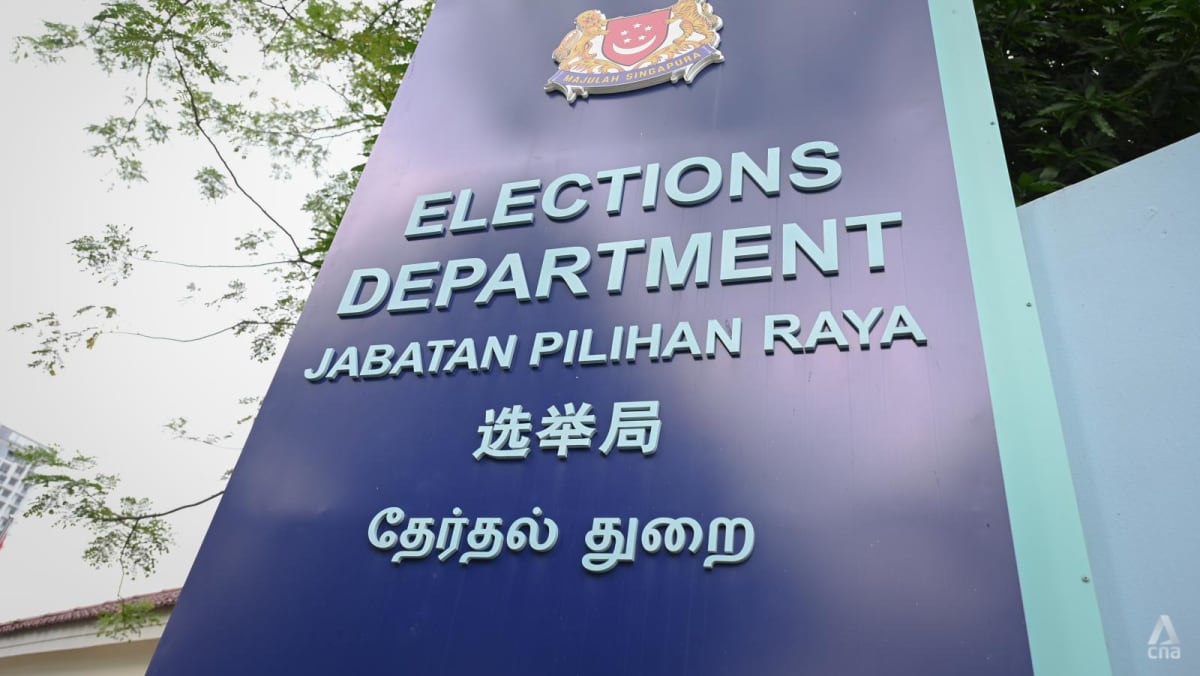SINGAPORE: Shares of Singapore’s three local banks are already at their lowest in more than seven months, but growing concerns over trade tariffs could mean further share price volatility ahead, analysts said.
Citing the possibility of higher credit risk alongside weaker loan demand and earnings, several market analysts have downgraded their outlook for the local banking trio and cut target prices in recent days.
The three local banks have chalked up double-digit declines since United States President Donald Trump announced sweeping tariffs on dozens of countries a week ago, sparking fears of a global trade war and recession.
The latest retaliatory move by China to impose 84 per cent tariffs on US goods from Thursday (Apr 10) will add to these fears.
DBS, which finished at S$37.16 on Wednesday, has plunged 19 per cent since the tariffs were first made on Apr 2.
OCBC, last seen at S$14.42, lost 16 per cent over the past five trading sessions, while UOB’s closing price of S$30.99 on Wednesday marked a slump of 18 per cent.
Altogether, the three local lenders have shed about S$48.8 billion in market value since Apr 2, based on CNA’s calculations.
However, those declines may see some reversals after President Trump announced a 90-day pause in tariffs for most countries on Wednesday, in a move which saw share prices surging on Wall Street.
“DOWNSIDE EARNINGS RISKS”
While banks may not be directly exposed to the tariffs, they will feel the impact through slower economic growth, trade and business activities, analysts said.
When growth slows, companies are likely to turn cautious about spending and taking loans. The same goes for the average consumer. Borrowers could also fall behind on payments – all of which is not good news for banks.
The tariffs and the potential chilling effect on global trade and growth are especially hurtful for Asia’s manufacturing and export-oriented economies. The region also bears the brunt of the higher US tariffs, with rates ranging from 18 per cent to 49 per cent.
“The slowdown in intra-regional trade triggered by reciprocal tariffs will reverberate across supply chains in the region,” said UOB Kay Hian, adding that the manufacturing sector may be in for “turmoil and job losses”.
Given their exposure to the region, the Singapore banks will feel the heat in terms of lower loan growth and higher credit costs due to non-performing loans, the brokerage added.
.jpg?itok=COjfDl6t)











